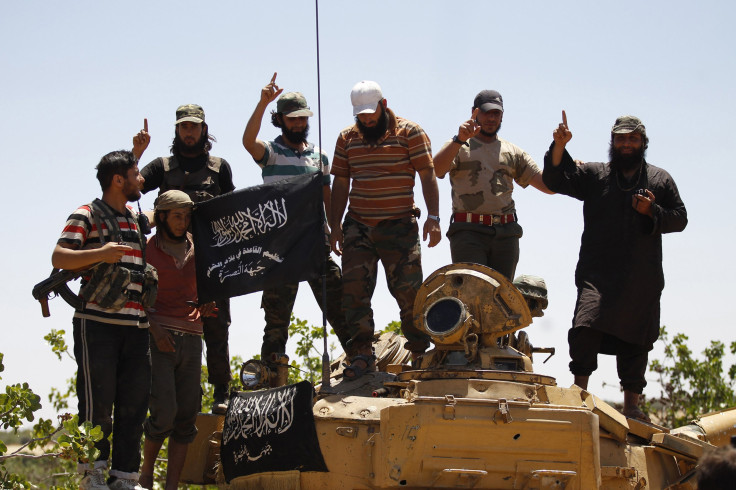Jabhat Al-Nusra's Attacks On Moderate Rebels Put Western Strategy In Jeopardy

The rise of extremist groups like the Islamic State and Jabhat al-Nusra during Syria’s civil war has delivered heavy blows to the moderate rebels the U.S. is backing, who are also under attack from President Bashar Assad’s regime. Training and arming these groups is a major portion of the Western coalition’s plan to eradicate Islamic State militants, but recent extremist advances threaten to wipe the U.S.-backed opposition completely off the Syrian map.
Al Qaeda’s branch in Syria, Jabhat al-Nusra, launched a series of operations this month in what the Washington Post called a “concerted push to vanquish the moderate Free Syrian Army.” This caused significant territorial and weapons loss for moderate rebels, grouped under the Free Syrian Army (FSA) label, in the Idlib province, an opposition stronghold.
“Is the FSA dead? I would say that the FSA was never really alive. It was never really a viable route for us to work with,” said Max Abrahms, a Northeastern University professor who studies jihadist groups. “I think pundits have been blinded by their wishes rather than by the appearance on the ground.”
The FSA is an umbrella organization that houses several different opposition brigades around Syria with strongholds in Idlib, Aleppo and Syria’s southern cities of Daraa and Quneitra. All share the common goal of overthrowing the regime; many have received funding and training from the United States, and some are taking that wealth to extremist militants they see as having a bigger chance of ultimately defeating the regime.
“Within these groups there is substantial heterogeneity in terms of the political preferences of their members as well as their tactics,” Abrahms said. “The groups surrendering and defecting to Nusra are precisely the ones that the U.S. government has been investing most heavily in.”
Nusra launched separate attacks in Idlib last week and targeted two of the biggest Western-backed groups: Harakat Hazm and the Syrian Revolutionary Front (SFR). Over the last week, Nusra seized at least eight villages from the SFR in southern Idlib and reportedly forced the group to surrender its positions in the city of Ma’arat al-Nu’man, according to the Institute for the Study of War (ISW).
Nusra and Hazm reportedly signed a temporary truce Wednesday that stated the two groups would not attack each other near Aleppo, according to a pro-opposition news site. Despite the truce, Nusra fighters attacked Hazm bases and seized the town of Khan al-Subul on Sunday night, according to the Syrian Observatory for Human Rights.
Nusra’s gains showed that “the moderates are weaker than what we have been led to believe, despite increased funding from the West,” Charles Lister, a visiting fellow at the Brookings Doha Center, told the Washington Post.
However, the U.S. and Syria have different views of what is considered to be a moderate opposition, Abrahms said. Once favored by much of the anti-Assad Syrian population, experts said the FSA has lost some legitimacy through its involvement with the West and after sustaining heavy blows from the regime and ISIS.
“Jabhat al-Nusra has capitalized on civilian opposition to the airstrikes to deepen its influence and to propagate its narrative that the coalition is working alongside Assad against the revolution,” according to a recent ISW report.
When the Western coalition began bombing ISIS targets in Syria, the Hazm brigade, opposition group Jaish al-Muhajideen and other FSA brigades issued statements condemning the aerial attack. While certain groups reversed their condemnations, their goal to take down the regime before ISIS has not changed.
“U.S. military planners misread Syria,” Abrahms said. “They traumatically, dramatically underestimated the amount of popular support in Syria for Nusra.”
© Copyright IBTimes 2025. All rights reserved.






















